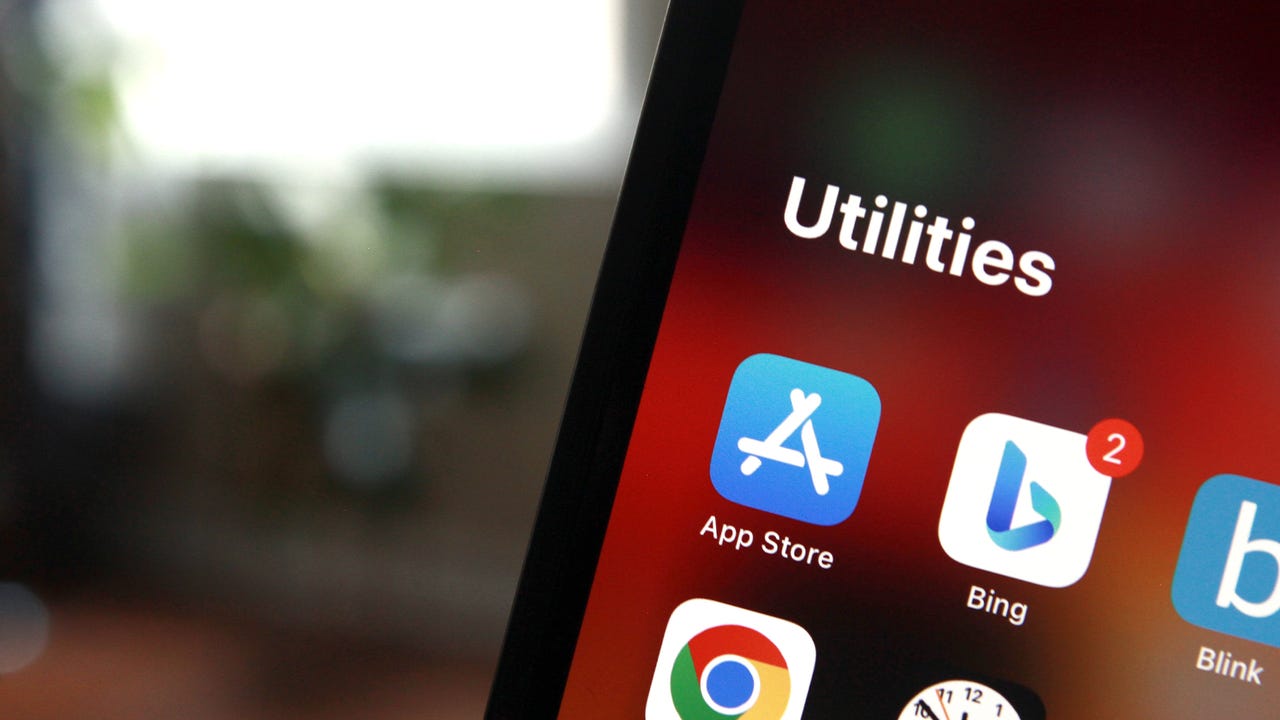'ZDNET Recommends': What exactly does it mean?
ZDNET's recommendations are based on many hours of testing, research, and comparison shopping. We gather data from the best available sources, including vendor and retailer listings as well as other relevant and independent reviews sites. And we pore over customer reviews to find out what matters to real people who already own and use the products and services we’re assessing.
When you click through from our site to a retailer and buy a product or service, we may earn affiliate commissions. This helps support our work, but does not affect what we cover or how, and it does not affect the price you pay. Neither ZDNET nor the author are compensated for these independent reviews. Indeed, we follow strict guidelines that ensure our editorial content is never influenced by advertisers.
ZDNET's editorial team writes on behalf of you, our reader. Our goal is to deliver the most accurate information and the most knowledgeable advice possible in order to help you make smarter buying decisions on tech gear and a wide array of products and services. Our editors thoroughly review and fact-check every article to ensure that our content meets the highest standards. If we have made an error or published misleading information, we will correct or clarify the article. If you see inaccuracies in our content, please report the mistake via this form.
Can I sideload apps on my iPhone without jailbreaking?

Apple has been forced to allow sideloading apps in the European Union (EU) to comply with the Digital Markets Act (DMA). The sideloading feature is not available in the US, as it's restricted to the 27 countries that comprise the EU. This feature's mere existence, however, may have you wondering if there are ways to circumvent the regional restriction and sideload apps if you live outside the EU.
Also: Apple releases iOS 17.4 with podcast transcripts, new emojis, and EU app store changes
The ability to sideload apps on an iPhone from third-party app stores is included in iOS 17.4, which is currently available for download in EU countries. Apple was legally required to allow app sideloading in the EU by March 7 as well as to let developers opt out of using its in-app payment system, which charges up to 30% in commission fees for apps and subscriptions purchased through the App Store.
Can I sideload apps on an iPhone using a VPN?
If you're thinking of getting a VPN for your iPhone to try sideloading, you may want to think twice. A person using a VPN cannot sideload apps on an iPhone outside the EU, or at least that's what Apple has told ZDNET.
When an iPhone user tries to sideload an app, Apple automatically checks that they meet a list of requirements, including double-checking their Apple ID's billing address, their device's current location, their iOS settings, and their device type.
Also: Apple secures iMessage against threats from the future
The iOS system "countryd" lets Apple determine whether or not you can download apps from a source other than the App Store, according to 9to5Mac. This internal system has been around since iOS 16.2 and gathers device data to determine the user's region. Reports indicate that the system also explicitly restricts devices from China from sideloading apps.
What is app sideloading?
Sideloading involves installing applications downloaded from a source other than the device manufacturer's official app store. While the Android operating system allows users to sideload apps, Apple does not allow sideloading and many other features in its closed ecosystem.
Also: Apple doubles the lifespan of your iPhone 15's battery, no update required
In the EU, Apple no longer requires that iPhones only run iOS apps from the App Store. However, Apple still requires a review of all iOS apps. Specifically, the company says that all iOS apps will undergo notarization, a process the company uses to check the app's basic information and perform security checks.
Is sideloading apps safe?
Sideloading apps isn't inherently unsafe, but it can open users up to cyberattacks and downloading malware. It's rare for iPhones to be infected with malware, partly because Apple treats iOS as a walled garden and has a meticulous process to keeping iPhones safe, including vetting apps in the App Store and prohibiting sideloading.
Apple claims that these new capabilities, which ensure compliance with the DMA, make the people who take advantage of them more vulnerable to cyberattacks. This is why Apple refuses to also make these changes outside the EU. It's unclear whether these concerns are genuine or the company is simply trying to maintain control over its ecosystem.
Also: Apple wants iPhone 15 users to chill out about their battery health
Lawmakers and developers hope (and Apple dreads) that the DMA will force the companies that the EU considers gatekeepers to stop abusing their market power and, in this case, open up the app market. Apple's unenthusiastic compliance, however, has sparked debates around the security of third-party app stores, a point the company doesn't let us forget.
Indeed, Apple has published "Complying with the Digital Markets Act," a whitepaper noting that several EU government agencies involved in defense, banking, and emergency services have voiced their concerns. These agencies have sought assurances from Apple on ways to prevent employees from sideloading apps on government-owned iPhones.
Also: Here's the fastest way to declutter your iPhone and free up Gigabytes of space
What's more, the whitepaper mentions that users have reached out to Apple CEO Tim Cook to express their DMA-related concerns and asking whether that the changes will compromise their iPhones' security.
What else does the DMA do?
The Digital Markets Act aims to make the digital economy in the EU more fair for consumers and level the competition. The set of regulations ensures that large tech companies currently dominating the digital market, known as 'gatekeepers,' take actions to comply with giving users fair choices and remove unfair competitive advantages.
Thanks to Apple's DMA compliance, developers in the EU can also offer alternative NFC payment methods to Apple Pay, take advantage of expanded app analytics, leverage new APIs to create browsers using alternative engines to WebKit, and more.
Apple told ZDNET that notarization is a more limited process than its traditional App Review, performed on apps available in the App Store.
